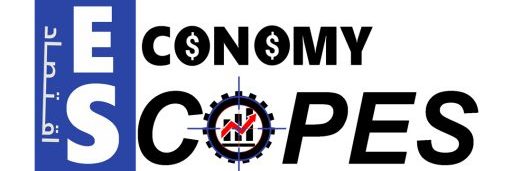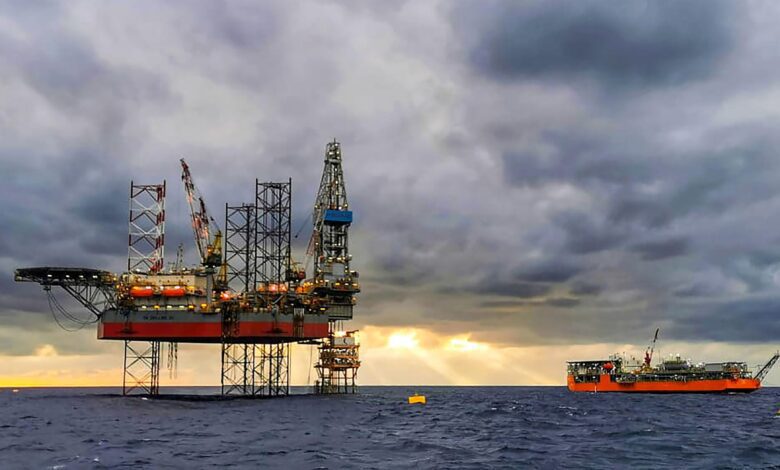لبنان يُلزّم رخصة استطلاع في البلوك رقم 8: خطوة استراتيجية نحو استكشاف النفط والغاز
مقدمة:
لطالما كانت موارد النفط والغاز في البحر اللبناني محط اهتمام متزايد، حيث أدرك لبنان أهمية هذه الموارد منذ فترة الانتداب الفرنسي. في عام 1926، أصدر المفوض السامي هنري دو جوفنيل تشريعًا يسمح بالتنقيب عن النفط والمعادن في لبنان، لتبدأ بذلك رحلة الاستكشاف التي شهدت محطات عديدة، أبرزها المرسوم رقم 10095 في عام 1975، الذي أتاح إعادة النظر في امتيازات التنقيب عن النفط. ورغم توقف هذه المحاولات في ظل الحرب الأهلية، إلا أن لبنان عاد لتفعيل هذا الملف في أوائل الألفية الجديدة.
محطات رئيسية في رحلة استكشاف النفط والغاز:
- في عام 2002، أطلقت الحكومة اللبنانية بالتعاون مع شركة “سبكتروم” البريطانية مسحًا ثنائي الأبعاد على طول الساحل اللبناني، والذي أظهر احتمال وجود النفط والغاز.
- بين عامي 2006 و2007، قامت شركة “جي آي أس” النروجية بإجراء مسح ثلاثي الأبعاد في المنطقة نفسها.
- عام 2013، بدأت دورة التراخيص الأولى في لبنان، حيث تم التوصل إلى اتفاق مع كونسورتيوم يضم شركات “إيني” الإيطالية و**”توتال” الفرنسية** و**”نوفاتيك” الروسية**.
- في 2017، أُعيد إطلاق دورة التراخيص، وأسفرت عن توقيع اتفاقيات استكشاف وإنتاج في الرقعتين 4 و9 مع نفس الكونسورتيوم.
دورة التراخيص الثانية والبلوك رقم 8:
خلال دورة التراخيص الثانية، تم تقديم عروض من قبل TotalEnergies وQatar Energy وENI على البلوكين 8 و10. وضمن هذا الإطار، تقدمت شركة TGS بطلب للحصول على رخصة استطلاع “غير حصرية” للبلوك رقم 8، الذي يُعد الوحيد من بين البلوكات العشرة التي لم يتم مسحها زلزاليًا ثلاثي الأبعاد.
أهمية رخصة الاستطلاع:
تكمن أهمية هذه الرخصة في تسريع عملية المسوحات الزلزالية باستخدام آلية المسوحات المتعددة الزبائن (Multi-Client 3D Seismic Surveys)، مما يسمح بعرض البلوك رقم 8 مع آلية الحفر أو التخلي (Drill or Drop) التي تمت مع البلوكات الأخرى. بالإضافة إلى ذلك، ستساعد المسوحات في تقليص الفترة الزمنية اللازمة قبل اتخاذ قرار الحفر، والتي كانت تمتد سابقًا إلى ما يقارب السنة.
التطورات الأخيرة:
في الأسبوع الماضي، أعلن وزير الطاقة والمياه وليد فياض عن منح شركة TGS رخصة استطلاع للبلوك رقم 8. وتغطّي هذه الرخصة مساحة 1300 كيلومتر مربع، وهي خطوة أساسية نحو استكمال المسوحات الزلزالية التي من شأنها تعزيز جاذبية البلوك لشركات الطاقة العالمية.
أحد الجوانب الإيجابية هو أن شركة TGS ستتحمل جميع التكاليف الخاصة بالمسوحات، بينما تتقاسم مع الدولة اللبنانية العوائد المالية الناتجة، والتي ستودع في الصندوق السيادي اللبناني فور إنشائه.
أهمية هذه الخطوة للبنان:
تأتي هذه الخطوة في وقت بالغ الأهمية حيث تسهم في إطلاق الأنشطة البترولية الاستكشافية مجددًا، وتعد بمثابة رسالة قوية تؤكد جدية لبنان في تطوير موارده الطبيعية. ويعكس ذلك رغبة لبنان في الانضمام إلى أسواق الطاقة الإقليمية والدولية، خاصة بعد النجاحات التي حققتها دول الجوار في استكشاف الغاز والنفط.
الاستعدادات لدورة التراخيص الثالثة:
يُذكر أن لبنان يستعد أيضًا لإتمام دورة التراخيص الثالثة، حيث من المقرر أن تنتهي مهلة تقديم طلبات المزايدة في 17 مارس 2025. وتستهدف هذه الدورة جذب المزيد من الشركات العالمية الكبرى مثل TotalEnergies وENI وQatar Energy.
الخلاصة:
إن تقديم بلوك رقم 8 للمسوحات الزلزالية يشكل خطوة مهمة نحو تطوير قطاع النفط والغاز في لبنان. من خلال توفير بيانات جيوفيزيائية دقيقة، يصبح هذا البلوك أكثر جذبًا لشركات الطاقة العالمية، ويعزز من قدرة لبنان على الاستفادة من موارده الطبيعية التي تعد فرصة استراتيجية للمستقبل.
Lebanon Grants Exploration License for Block 8: A Strategic Move for Oil and Gas Exploration
Introduction:
Lebanon has long recognized the importance of its offshore and onshore oil and gas resources, with the initial awareness dating back to the French Mandate period. In 1926, French High Commissioner Henri de Jouvenel issued legislation allowing the exploration and extraction of oil and minerals in Lebanon. Since then, Lebanon has made several attempts to explore and develop these resources, the most recent being Decree No. 10095 in 1975, which allowed for a reconsideration of exploration concessions for the state's benefit. Despite delays caused by the civil war, the file was revived in the early 2000s.
Key Milestones in Lebanon's Oil and Gas Exploration Journey:
- In 2002, the Lebanese government, in collaboration with British company Spectrum, conducted a 2D seismic survey along the Lebanese coastline, indicating potential oil and gas reserves.
- Between 2006 and 2007, GIS, a Norwegian company, conducted a 3D seismic survey in the same area.
- In 2013, Lebanon initiated the first licensing round, leading to agreements with a consortium of Italian company Eni, French company Total, and Russian company Novatek.
- In 2017, the first licensing round was relaunched, resulting in exploration and production agreements for Blocks 4 and 9 with the same consortium.
Second Licensing Round and Block 8:
In the second licensing round, offers were made by TotalEnergies, Qatar Energy, and ENI for Blocks 8 and 10. As part of this, TGS applied for a non-exclusive reconnaissance license for Block 8, the only block among the ten that had not undergone a 3D seismic survey.
Importance of the Exploration License:
This license is significant because it accelerates the seismic survey process using the multi-client 3D seismic surveys method. This means that Block 8 will be ready for the Drill or Drop decision, similar to other blocks. Additionally, the seismic surveys will reduce the timeline for the exploration phase, which previously could take up to a year.
Recent Developments:
Last week, Minister of Energy and Water Walid Fayad announced the grant of the reconnaissance license to TGS for Block 8. The license covers an area of 1300 square kilometers, marking a critical step in completing the seismic surveys that will enhance the attractiveness of the block for global energy companies.
A key positive aspect is that TGS will bear all costs of the surveys, with the revenues being shared with Lebanon and deposited into the sovereign wealth fund once established.
Significance of This Step for Lebanon:
This move comes at a pivotal time, contributing to the relaunch of oil and gas exploration activities in Lebanon and sending a strong message about the country's seriousness in developing its natural resources. It positions Lebanon on the map of regional and international energy markets, particularly following the successes of neighboring countries in gas exploration.
Preparations for the Third Licensing Round:
Lebanon is also preparing for the third licensing round, with the deadline for bidding submissions set for March 17, 2025. This round aims to attract more major global companies, including TotalEnergies, ENI, and Qatar Energy.
Conclusion:
The granting of Block 8 for seismic surveys marks a key milestone in the development of Lebanon's oil and gas sector. By providing accurate geophysical data, the block becomes more attractive to global energy companies, enhancing Lebanon’s ability to tap into its natural resources and positioning it for a strategic future in the energy market.
Translated by economyscopes team
المصدر: النهار







